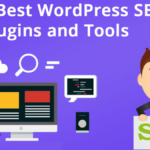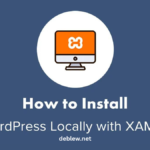As the world of digital marketing and social media continues to evolve, businesses have incorporated B2B social media marketing (SMM) into their strategies.
For any company looking to expand and grow its customer base, it’s essential to understand how SMM can be used effectively.
With the right approach, B2B SMM can not only help companies reach a wider audience but also create meaningful relationships with potential customers.
What is B2B Social Media Marketing?
B2B social media marketing is the use of social media platforms to connect with and market to potential business customers. It is a form of digital marketing that utilizes the power of online networks and tools to promote products and services to businesses.
B2B social media marketing is often used in tandem with other forms of digital marketing such as search engine optimization (SEO) and content marketing.
The primary objective of B2B social media marketing is to establish relationships between businesses, build brand loyalty, generate leads, increase website traffic, and raise brand awareness.
When done strategically, it can help companies engage with their target audience more effectively by providing valuable information or insights into industry trends.
Additionally, it provides an opportunity for companies to showcase their expertise in their respective fields through high-quality content, which can also be shared across multiple channels.
Key Benefits of Social Media Marketing
Social media marketing is an effective way to engage with target audiences and build relationships with them with features such as content creation, audience segmentation, and social listening, companies can create great campaigns that are tailored to their individual needs.
More Brand Exposure:
One major benefit that companies have found with social media marketing is increased exposure for their brand. Social media platforms allow them to get their message out to large audiences in ways that traditional advertising methods may not be able to do as efficiently.
They can even target certain demographics or locations for maximum impact when presenting their message and product campaigns.
Additionally, being active on multiple channels allows consumers more opportunities to discover the company’s offerings, which helps foster greater consumer engagement with the brand overall.
Improved Customer Service:
Social media marketing is quickly becoming a necessity for businesses of all sizes.
As more customers turn to their favourite networks to ask questions, voice concerns and provide feedback, businesses are increasingly turning to social media as a means of providing a better customer service experience.
Improved customer service is one of the key benefits that companies can gain from using social media marketing as part of their overall marketing strategy.
With social media, businesses can respond to customers almost immediately and begin resolving any issues they may have in real-time.
This not only helps them build relationships with customers but also ensures that complaints or grievances are addressed quickly and effectively.
Additionally, it gives companies an opportunity to showcase the products and services they offer while highlighting positive customer experiences with those products or services.
A Multi-Channel Approach:
A multi-channel approach to social media marketing can provide multiple benefits for your business, such as increased visibility and better customer engagement.
A multi-channel approach allows you to use different channels simultaneously, thus creating a more comprehensive strategy that can target wider audiences than just one platform alone.
This type of strategy increases the chances of reaching potential customers who might not be active on any particular platform but are still interested in what you have to offer.
You can also use multiple channels to test different tactics and measure which ones give you the best results with minimal effort and expense.
Additionally, using multiple channels helps build brand awareness across various platforms, which boosts customer trust in your business over time.
Increased Website Traffic:
An effective social media marketing strategy can help increase website traffic and generate more leads for your business.
Engaging with customers on social media platforms such as Facebook, Twitter, Instagram, and LinkedIn is an excellent way to build relationships with potential customers. With the right approach, it can also bring a steady stream of new visitors to your website.
Social media provides an easy opportunity for businesses to share useful content that their followers find interesting or helpful. This type of content will encourage people to visit your website and learn more about what you offer.
Additionally, when you create compelling posts that get shared by others in the same industry or niche audience, it increases visibility and helps draw even more attention to your website.
By engaging with customers on social media platforms and providing valuable content that encourages them to visit your website, you are sure to see increased traffic over time.
More Search Visibility:
By utilizing social media channels to promote their products or services, companies can increase search visibility on Google and other search engines. This article will discuss how social media can benefit your business by increasing its online visibility.
With more people using social networks daily to communicate with friends or follow brands they like, businesses are able to leverage this trend and make their presence known.
Having an active presence on popular networks ensures that your brand is seen by potential customers who may not have seen it otherwise.
Additionally, many social media sites allow for targeting based on user interests which makes it easier for companies to find the right audience for their product or service.
Better Audience Understanding:
By leveraging platforms such as Facebook, Twitter, Instagram, YouTube and LinkedIn, organizations now have a powerful tool to reach out to customers or potential customers with tailored content that resonates with them.
The value of social media marketing lies in its ability to provide real-time insights into how people are responding to the content being shared.
Through the use of metrics such as likes, comments and shares, marketers can gain a better understanding of their audience’s behaviours and preferences.
This allows companies to tailor their messages accordingly in order to maximize engagement levels for future campaigns.
It also helps them identify areas where they may need improvement or adjustments when it comes to engaging their target demographic.
Strengthened Thought Leadership:
Thought leadership is an invaluable asset for any business. It can help increase your brand’s visibility and build trust with potential customers. Social media is a great way to strengthen your thought leadership presence, as it gives you the opportunity to engage with large audiences on a daily basis.
When done correctly, social media marketing allows you to establish yourself as an expert in your field, so that customers will view you as someone they can trust and rely upon.
With the right strategy, you can create content and conversations that showcase your knowledge in a meaningful way.
This will not only boost customer loyalty but also position you as an industry leader who people want to follow and learn from.
Social media also provides numerous opportunities for networking which can further enhance your thought leadership status by connecting you with key influencers or even potential partners or investors.
Common Challenges of Social Media Marketing
Having a strong presence on social media can be an effective way to reach new customers and build relationships with existing ones.
However, it is not as simple as creating a few posts and watching the followers come pouring in – there are common challenges associated with running successful social media campaigns:
Measuring ROI:
One of the biggest challenges with a social media marketing strategy is measuring the return on investment (ROI). Companies need to determine if the money spent on their social media campaigns is worth it or not.
When it comes to ROI, there are several key metrics that business owners can track in order to assess the effectiveness of their campaigns.
These include engagement rate, click-through rate, conversions, leads generated and cost per lead.
By keeping a close eye on these metrics over time, business owners can get a better idea of how well their social media efforts are performing and whether they should continue investing in them or not.
Furthermore, businesses can use surveys and customer feedback as additional ways to measure ROI from their social media campaigns.
The Need for More Content:
The need for more content is the challenge of social media marketing. Social media platforms are constantly growing, changing and evolving, and as a result, marketers must continuously update their strategies to ensure they remain effective.
In today’s digital landscape, businesses must create engaging content that their target audiences will find interesting and shareable across multiple channels.
This can be an overwhelming task for some companies who don’t have the time or resources to keep up with the ever-changing trends in social media marketing.
Content creation needs to be done quickly and effectively in order to reach customers on multiple platforms and drive business growth.
Dark Social:
Dark social has become an increasingly important challenge for businesses to tackle when approaching social media marketing in the 21st century.
Dark social is a term used to describe the traffic and engagement from private messaging, such as email, instant messaging, and text messages that are not easily measured by analytics tools.
This can be a challenge for businesses that rely on understanding engagement levels with their content—and therefore potential customers—on social media platforms.
Businesses must find creative ways to measure dark social or trust in word-of-mouth referrals from satisfied customers that reach other potential customers through dark social channels.
To do this, marketers can generate unique tracking links to include within emails or direct messages and use them as an indicator of customer interest in certain products or services they offer.
Authenticity:
Authenticity is the challenge of social media marketing. As consumers are becoming more aware of manipulative techniques used by marketers, it is increasingly difficult to gain their trust and loyalty through traditional methods.
To make genuine connections with customers, companies need to embrace authentic messaging that resonates with their audience on a personal level.
Authenticity in social media marketing requires a deep understanding of the customer’s needs and preferences as well as an honest representation of your brand values in every post.
Companies must focus on creating content that not only captures attention but also provides value to users.
To do this, they should use user-generated content and leverage influencers who can act as trustworthy advocates for their brand message.
Engaging with customers during conversations can also help earn credibility and trustworthiness among followers.
Build B2B SMM Strategy
Business-to-business (B2B) social media marketing (SMM) is an essential part of any business’s overall marketing strategy.
B2B SMM is a powerful tool for developing relationships with both current and potential clients and customers, as well as industry influencers.
When building a B2B SMM strategy, there are several important considerations to keep in mind:
Establish Right Goals
Establishing the right goals is essential for building an effective B2B social media marketing (SMM) strategy.
Without specific goals, your SMM efforts will be unfocused and lack the clarity needed to reach success. Goals are the foundation of your SMM campaigns, as they provide a clear direction on how you want to achieve results.
When setting up your SMM objectives, consider what you want to accomplish in terms of reaching out to new customers or engaging current customers with content. Moreover, determine how you can measure success.
For example, if one of your objectives is to increase website traffic then focus on metrics such as page views or time spent on site as indicators of progress towards that goal.
Additionally, decide what resources such as budget and manpower are available for this project and factor them into consideration when deciding which goals can realistically be met in a given time frame.
Define Ideal Customer
For B2B companies, understanding their ideal customer is the first step to building a successful social media strategy.
Knowing who they are targeting helps to identify which platforms and strategies to focus on, create content that resonates with their audience and craft campaigns that drive results.
Knowing your ideal customer means gathering data about them such as demographics, interests, job titles and more.
This information can be used to build user personas which will provide insights into how potential customers interact with different platforms.
By knowing the type of content they prefer and the channels they use most frequently, B2B companies can tailor their social media posts accordingly.
Additionally, having this valuable data allows businesses to measure the impact of their marketing efforts more effectively.
Repurpose Long Form Content
Using long-form content is a great way to build an effective B2B social media strategy. Content such as blog posts, articles or case studies that provide detailed information about the services and products offered by the business is an excellent way to attract potential customers.
By repurposing this type of long-form content into smaller, more shareable pieces, businesses can reach a larger audience and create a more impactful presence on social media sites.
By breaking up longer pieces into smaller “bits” of information, businesses can use the same material in multiple ways to keep their followers engaged with fresh content.
For example, they could use quotes from their article as part of quote cards; turn infographics into individual images, or break down an in-depth blog post into small snippets that link back to the original post for further exploration.
Distribute Content
Distributing your content is an effective way of reaching out to potential customers. Social media has become a powerful tool for businesses and it’s essential that companies make use of it in order to reach their target audience.
One way businesses can do this is by distributing content across different social media channels. By sharing your content on different platforms, you can increase brand awareness and visibility, as well as build relationships with other industry professionals and potential customers.
Content distribution also plays a key role in helping businesses create an effective B2B social media strategy. It allows businesses to reach more people with their message, while also showcasing various products or services they offer.
Additionally, distributing content across multiple social media networks will help increase engagement and interaction from users, which can further boost brand awareness and recognition among potential customers.
Build a Community
Building a community is essential for any business to succeed, especially when it comes to B2B Social Media Marketing (SMM).
The success of an SMM strategy relies on having an engaged and interactive audience that can help promote the company’s products or services. Therefore, building a community should be one of the top priorities in any B2B SMM strategy.
Creating a community involves creating content that is tailored specifically for your target audience and making sure it resonates with them.
This can include sharing helpful information related to their industry, posting regularly about current trends and topics, responding quickly to comments or questions from followers and providing customer service within the social platform itself.
Additionally, engaging with influencers in your industry will boost your visibility and credibility within your target market as well as foster relationships between you and potential customers.
The Future of Social Media Marketing
The future of social media marketing is an exciting field with tremendous potential for businesses and organizations of all sizes.
As the digital landscape continues to evolve, so too will the ways in which companies can reach their target audiences through innovative strategies.
Social media platforms such as Facebook, Twitter, LinkedIn, and Instagram present companies with a unique opportunity to create meaningful relationships with consumers in a more personal way than ever before.
From leveraging data analysis tools to build customer profiles within specific demographics, to utilizing multimedia content such as videos and images to boost engagement – the possibilities for marketers are virtually endless when it comes to harnessing the power of social media marketing.
Companies have already begun experimenting with AI-driven chatbots and virtual reality technologies that enable customers to interact directly with brands in immersive ways.
Tips for B2B SMM
Social media marketing (SMM) is essential for any successful B2B business. It can help develop relationships with customers, expand your reach and build brand awareness. However, navigating the complex world of B2B SMM can be challenging.
Choose the right platforms
When it comes to B2B social media marketing, one size does not fit all. Different platforms serve different purposes, and understanding which is best for your business can make or break a successful strategy.
While the “big three” of LinkedIn, Twitter and Facebook are great starting points, there are other platforms that shouldn’t be overlooked when crafting an effective B2B social media presence.
To get maximum value from your efforts, you should look for networks that cater specifically to the types of customers you’re targeting.
For example, if you’re a law firm looking to reach corporate executives in the financial services industry then professional network sites like Quora might be worth exploring.
Similarly, if your business sells products aimed at creative professionals then visual-based sites such as Instagram may offer better opportunities compared with traditional text-heavy platforms like Twitter or LinkedIn.
Interact with your audience
Interacting with your audience on social media is an important part of any successful B2B SMM strategy.
Not only does it help build relationships and trust between your brand and its followers, but it can also provide invaluable insights into the needs, wants, and motivations of your customers.
Creating a culture of meaningful interaction between your brand and customers requires tapping into the right channels to reach them effectively.
For example, LinkedIn is often used for professional networking while Facebook has a broader range of users.
Developing content that is relevant to each platform will help foster more organic conversations with potential customers or clients.
Additionally, using surveys or polls to solicit feedback from followers can give you valuable insight into how they perceive your company and its products or services.
Share informational content
In the world of B2B social media marketing, there is no better way to engage with potential customers than through the sharing of informational content.
Companies have a wide range of options when it comes to creating and promoting content that will pique the interest of their target audience.
Whether they choose to share blog posts, infographics, or educational videos, all forms of informational content can be extremely beneficial in terms of boosting brand recognition and building relationships with customers.
Share social proof
Companies are finding that leveraging social proof to gain trust and build relationships with potential customers is beneficial in their SMM efforts.
Social proof can come in many forms, such as customer reviews and testimonials, case studies, endorsements from influencers or bloggers, loyalty programs, awards and recognitions received by a company, user ratings on different review sites and more.
However, whether you decide to share it with your audience will depend on the type of product or service you offer. By leveraging social proof through various channels, B2B companies can reap the rewards of increased conversions, improved brand awareness and credibility.
Schedule your posts
Businesses are moving from traditional marketing to social media marketing. But this brings in the challenge of how to effectively manage multiple channels and post regularly without overloading your own resources.
Scheduling posts can be a great solution for B2B social media management as it allows you to plan content ahead of time, allowing for more consistent posting.
Scheduling posts can be beneficial for businesses in many ways, such as saving time and money, increasing engagement with customers and followers, reaching more people across different time zones and keeping your brand’s presence alive on social media.
It also helps create an organized workflow so that each team member knows what is expected of them when creating content or managing channels.
Additionally, scheduling ahead gives you enough time to review content before publishing it online which can help avoid potential mistakes or errors.
Use paid social media ads
Paid social media advertising has become an increasingly popular method of promoting products and services amongst B2B businesses.
With more than 3 billion people now active on social media, it is no wonder that brands have been keen to take advantage of the opportunity to reach out to this large target audience.
Using paid social media ads, B2B companies can increase their visibility and generate leads through organic search growth.
For any B2B business looking to make the most of its paid social media strategy, there are a number of things they should consider.
This includes choosing the right platforms for their ads, developing content that resonates with their target audience and setting up clear objectives for each campaign.
Investing in well-researched campaigns can help drive traffic to a website or create awareness about specific products or services.
FAQs
What does B2B mean in marketing?
B2B stands for “Business to Business” and it is a type of marketing that focuses on selling products or services to other businesses. It often involves complex sales cycles and requires a different approach than B2C (business-to-consumer) marketing.
B2B marketing typically involves creating content that educates potential buyers, building relationships with key decision-makers, and leveraging digital channels such as email, social media, and search engine optimization.
Which social media is best for B2B marketing?
LinkedIn is generally considered the best platform for B2B marketing, as it allows you to connect with other businesses and professionals directly. Additionally, Twitter and Facebook can also be effective tools for B2B marketing, as they allow you to reach a large audience quickly and easily.
Is TikTok B2B or B2C?
TikTok is a B2C platform, meaning it is used to connect businesses with individual consumers. It is used by brands to create content that appeals to their target audience, and by individuals to discover new products and services.
Is Facebook a B2B or B2C?
Facebook is a B2C (business-to-consumer) platform. It provides businesses with tools to advertise and market their products and services directly to consumers. Businesses can also create Pages on Facebook to promote their brand and connect with customers.
Is YouTube a B2B or B2C?
YouTube is primarily a B2C (Business-to-consumer) platform. It provides content and services to individual users, and businesses can use the platform to advertise their products or services. YouTube also has some B2B (Business to Business) features, such as allowing companies to host their own channels and collaborate with other businesses.
Final Thoughts
In conclusion, B2B Social Media Marketing (SMM) is an effective way to reach out and build relationships with customers, especially in the digital age. It can help to increase brand awareness and trust, enhance customer engagement, and drive long-term loyalty.
SMM also allows businesses to connect with their target audiences more effectively and efficiently, as well as deliver timely information about new products or services.







